Mitsubishi Eclipse Cross vs VW ID.4 - Differences and prices compared
Compare performance (218 HP vs 340 HP), boot space and price (41100 £ vs 34600 £ ) at a glance. Find out which car is the better choice for you – Mitsubishi Eclipse Cross or VW ID.4?
Costs and Efficiency:
Price and efficiency are often the first things buyers look at. Here it becomes clear which model has the long-term edge – whether at the pump, the plug, or in purchase price.
VW ID.4 has a slightly advantage in terms of price – it starts at 34600 £ , while the Mitsubishi Eclipse Cross costs 41100 £ . That’s a price difference of around 6562 £.
In terms of energy consumption, the advantage goes to the VW ID.4: with 15.60 kWh per 100 km, it’s minimal more efficient than the Mitsubishi Eclipse Cross with 16.70 kWh. That’s a difference of about 1.10 kWh.
As for electric range, the Mitsubishi Eclipse Cross performs somewhat better – achieving up to 635 km, about 66 km more than the VW ID.4.
Engine and Performance:
Power, torque and acceleration are the classic benchmarks for car enthusiasts – and here, some clear differences start to show.
When it comes to engine power, the VW ID.4 has a clearly perceptible edge – offering 340 HP compared to 218 HP. That’s roughly 122 HP more horsepower.
In acceleration from 0 to 100 km/h, the VW ID.4 is convincingly quicker – completing the sprint in 5.40 s, while the Mitsubishi Eclipse Cross takes 7.90 s. That’s about 2.50 s faster.
In terms of top speed, the VW ID.4 performs minimal better – reaching 180 km/h, while the Mitsubishi Eclipse Cross tops out at 170 km/h. The difference is around 10 km/h.
There’s also a difference in torque: VW ID.4 pulls decisively stronger with 679 Nm compared to 300 Nm. That’s about 379 Nm difference.
Space and Everyday Use:
Cabin size, boot volume and payload all play a role in everyday practicality. Here, comfort and flexibility make the difference.
Both vehicles offer seating for 5 people.
In terms of boot space, the VW ID.4 offers somewhat more room – 543 L compared to 487 L. That’s a difference of about 56 L.
In maximum load capacity, the Mitsubishi Eclipse Cross performs hardly perceptible better – up to 1670 L, which is about 95 L more than the VW ID.4.
Who wins the race in the data check?
The VW ID.4 sits well ahead of its rival in the objective data comparison.
This result only shows which model scores more points on paper – not which of the two cars feels right for you.
Costs and Consumption
View detailed analysis
Engine and Performance
View detailed analysis
Dimensions and Body
View detailed analysis
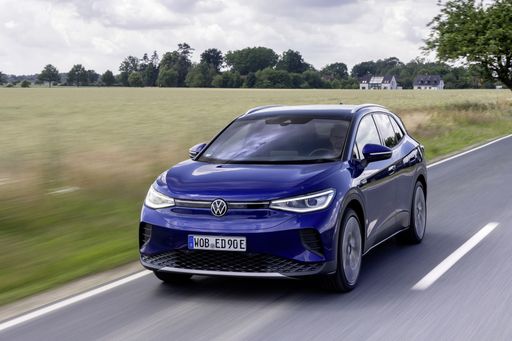
VW ID.4
Mitsubishi Eclipse Cross
Mitsubishi Eclipse Cross combines coupe-like looks with crossover practicality, so you get style without the showroom attitude. It’s an affable daily driver that hides a few quirks behind a confident grin, making it an easy pick for buyers who want personality without fuss.
details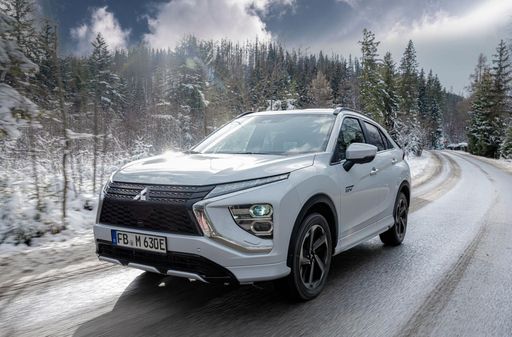
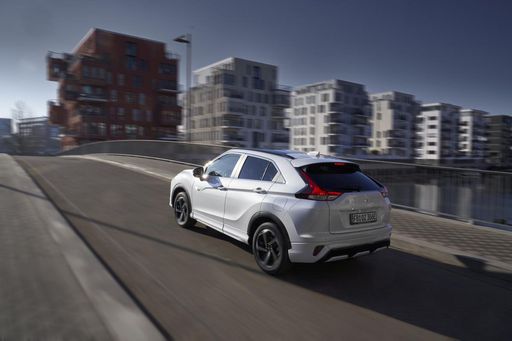
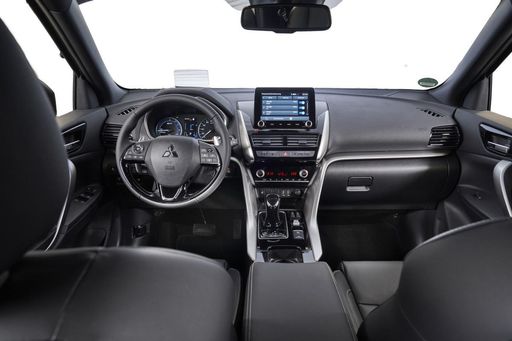
VW ID.4
The VW ID.4 is a calm, roomy electric SUV that turns everyday driving into a quietly confident experience, its practical packaging and smooth manners tailored perfectly for family life. Volkswagen's solid build and intuitive interior tech mean you get electric practicality without the sci‑fi theatrics, making the ID.4 a sensible, surprisingly likable choice for most buyers.
details
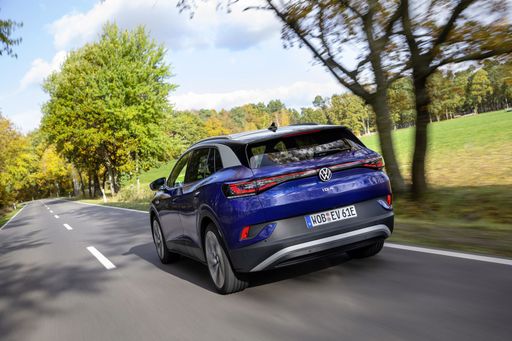
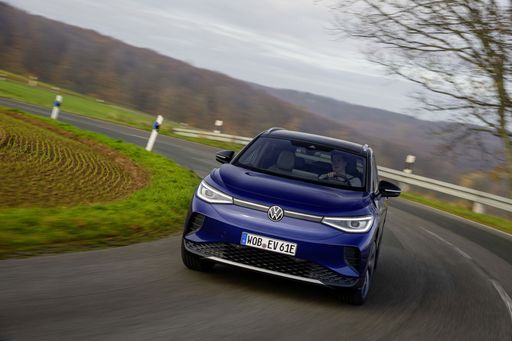
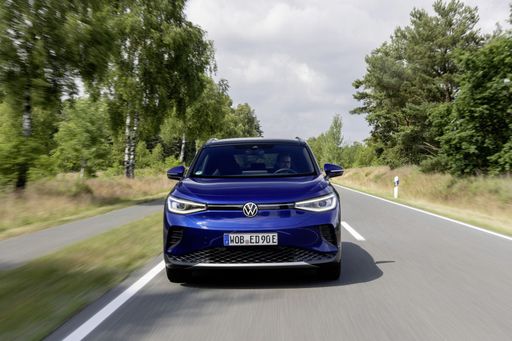
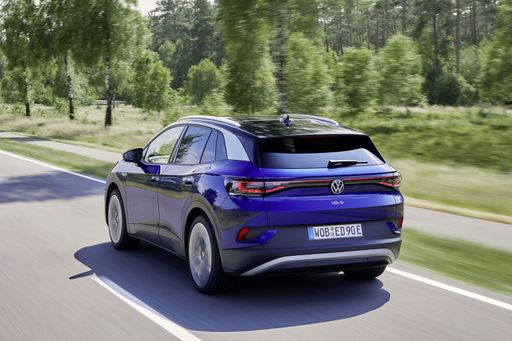

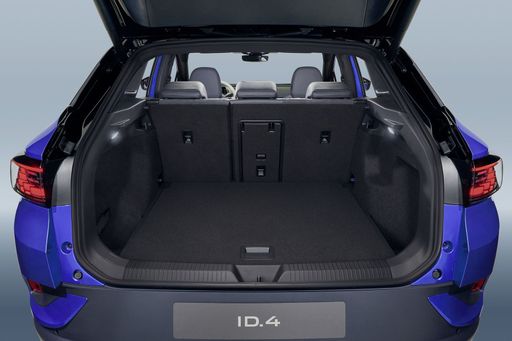
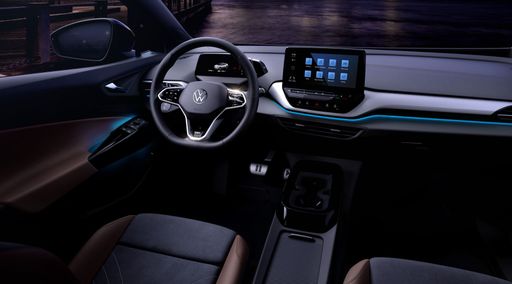
Costs and Consumption |
|
|---|---|
|
Price
41100 - 48200 £
|
Price
34600 - 47200 £
|
|
Consumption L/100km
-
|
Consumption L/100km
-
|
|
Consumption kWh/100km
16.7 - 16.9 kWh
|
Consumption kWh/100km
15.6 - 17 kWh
|
|
Electric Range
635 km
|
Electric Range
356 - 569 km
|
|
Battery Capacity
-
|
Battery Capacity
52 - 77 kWh
|
|
co2
0 g/km
|
co2
0 g/km
|
|
Fuel tank capacity
-
|
Fuel tank capacity
-
|
Dimensions and Body |
|
|---|---|
|
Body Type
SUV
|
Body Type
SUV
|
|
Seats
5
|
Seats
5
|
|
Doors
5
|
Doors
5
|
|
Curb weight
-
|
Curb weight
1975 - 2248 kg
|
|
Trunk capacity
487 L
|
Trunk capacity
543 L
|
|
Length
4489 mm
|
Length
4582 - 4584 mm
|
|
Width
1908 mm
|
Width
1852 mm
|
|
Height
1571 mm
|
Height
1619 - 1634 mm
|
|
Max trunk capacity
1670 L
|
Max trunk capacity
1575 L
|
|
Payload
-
|
Payload
515 - 551 kg
|
Engine and Performance |
|
|---|---|
|
Engine Type
Electric
|
Engine Type
Electric
|
|
Transmission
Automatic
|
Transmission
Automatic
|
|
Transmission Detail
Reduction Gearbox
|
Transmission Detail
Reduction Gearbox
|
|
Drive Type
Front-Wheel Drive
|
Drive Type
Rear-Wheel Drive, All-Wheel Drive
|
|
Power HP
218 HP
|
Power HP
170 - 340 HP
|
|
Acceleration 0-100km/h
7.90 s
|
Acceleration 0-100km/h
5.4 - 9 s
|
|
Max Speed
170 km/h
|
Max Speed
160 - 180 km/h
|
|
Torque
300 Nm
|
Torque
310 - 679 Nm
|
|
Number of Cylinders
-
|
Number of Cylinders
-
|
|
Power kW
160 kW
|
Power kW
125 - 250 kW
|
|
Engine capacity
-
|
Engine capacity
-
|
General |
|
|---|---|
|
Model Year
2025
|
Model Year
2023 - 2025
|
|
CO2 Efficiency Class
A
|
CO2 Efficiency Class
A
|
|
Brand
Mitsubishi
|
Brand
VW
|
What drive types are available for the Mitsubishi Eclipse Cross?
Available configurations include Front-Wheel Drive.
